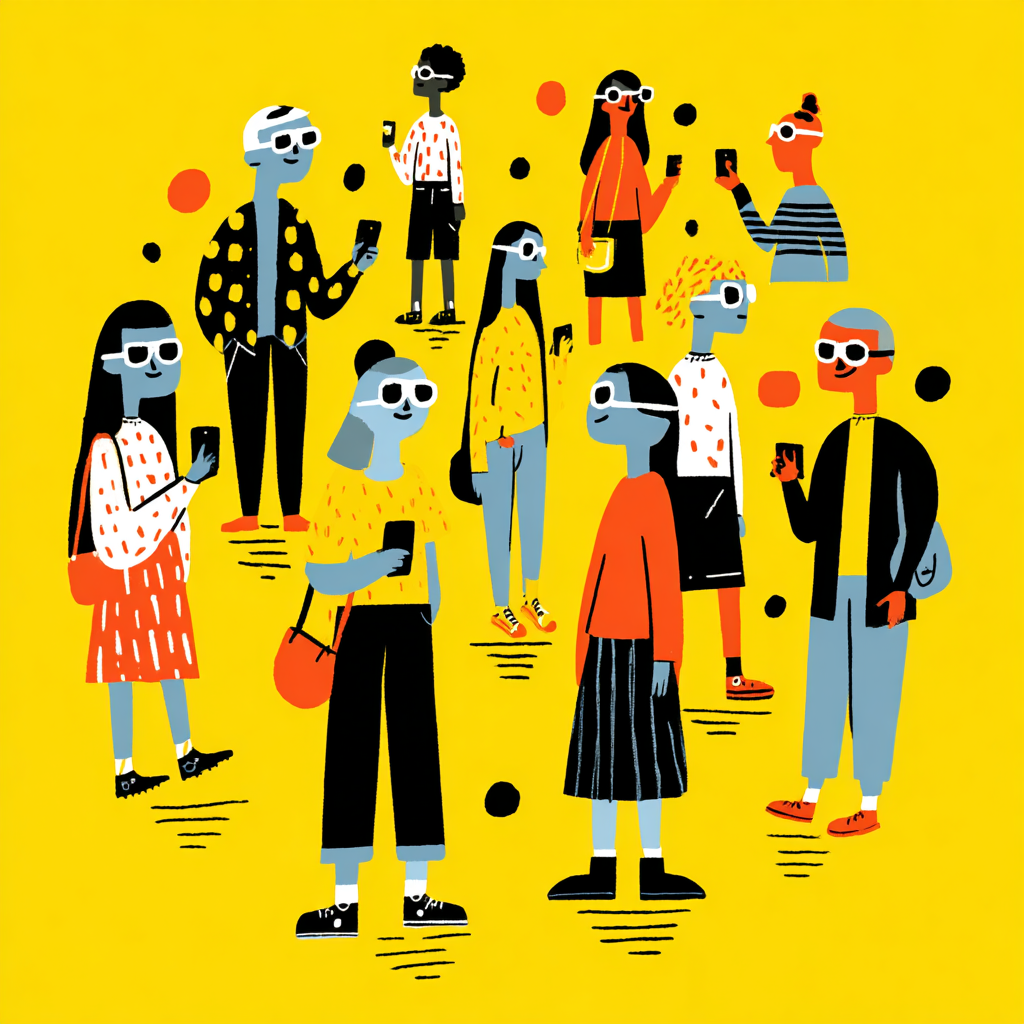100 Beliefs About AI & the Future of Work

The following are beliefs and understandings about AI and the future of work. They guide me in my research and helped me write Keep Your Day Job. While I see every fact individually as a temporary belief that I hold, together they hold a certain power and give an interesting insight into how I see the future of work.
AI rearranges work long before it replaces it.
Automation deletes tasks, not humans— unless humans cling to tasks.
Your "job" is really a bundle of micro‑tasks; AI eats the low‑hanging ones first.
The biggest career risk is not AI—it’s human inertia.
History’s “job apocalypses” always ended as skills reshuffles: steam, sparks, silicon—repeat.
Robots build the cars; humans build the robots.
In every productivity equation, Human + AI > Human + Human.
Learning to prompt is the new touch‑typing—basic, ubiquitous, non‑negotiable.
AI is a power tool; without skill, it’s still a finger‑remover.
The fastest way to future‑proof is to audit your Task DNA every quarter.
Latency tolerance is the secret moat—when speed kills, humans charge a premium for nuance.
“Co‑pilot” is not a job title; it’s a mindset.
If capital shifts, your calendar must shift with it.
The floodplain of disruption is wide; buy skills insurance, not sandbags.
One hour of AI Shadowing beats nine months of theoretical upskilling.
AI cost curves fall faster than your learning curves rise—start today.
The barbell career—deep human moat + broad AI fluency—outlifts any single heavyweight skill.
Automation anxiety is a feature, not a bug; channel it or drown in it.
Your résumé verbs matter less than your adaptive verbs: learn, test, iterate.
“Prompt engineer” is a temp title; strategic prompters endure.
Trust travels slower than data—humans remain the couriers.
AI makes mediocre faster; only remarkable survives.
Every efficiency gain spawns a demand gain somewhere else.
If AI handles the what, humans must master the why.
Humanoid robots may walk, but plumbers still crawl under sinks.
Ethical judgment scales slowly and expensively—still a human franchise.
An AI‑generated first draft is an empathy test you must pass.
Output without oversight is a liability multiplier.
Your new boss is a dashboard—learn to manage up to metrics.
Historical pattern: panic ➜ diffusion ➜ diversification. Anchor there.
If the algorithm sets quotas, negotiate the metrics, not the feelings.
Curiosity beats certainty in every technological arms race.
AI tutors level playing fields—unless access is gated by privilege.
Digital leverage turns one clever human into ten average ones.
Soft skills were renamed “hard to automate” skills—act accordingly.
Data empathy—reading what the numbers can’t say—is the new storytelling.
Cheaper creation shifts value to curation and orchestration.
Humans remain accountable—ask any malpractice lawyer.
Burnout isn’t inevitable; it’s usually un‑automated busywork.
The grey zone between full automation and manual toil is where margins bloom.
Learning velocity outranks accumulated knowledge after every tech quake.
AI widens capability gaps—your network closes opportunity gaps.
Career APIs—expose your skills as endpoints others (and AIs) can call.
Fear of tinkering is the true FOBO—Fear of Becoming Obsolete.
Adaptive teams beat superstar individuals when the toolset changes weekly.
Metrics monitored by AI become performance art—rehearse wisely.
Augmentation without upskilling is just slower replacement.
Your comparative advantage lives where accountability is high and latency is tolerated.
Brittle ethics statements crumble; living ethical audits endure.
The sooner you fire a task, the later you fire a teammate.
Human latency premium: minutes of reflection worth millions in liabilities.
Resilience stacking—cognitive, emotional, social, financial—beats any single safeguard.
Robots don’t take coffee breaks; humans need them to think.
If an algorithm scores your empathy, learn to game empathy authentically.
First drafts from AI demand second drafts of human judgment.
A portfolio paycheck hedges against single‑employer automation shocks.
“One more tool” thinking is how tech debt colonises workflows.
Scarce attention, not scarce information, defines the new economy.
Prompt libraries are the new trade secrets. Guard or share wisely.
Career ladders dissolve into fog; build way‑finding systems, not rungs.
AI capabilities double; your trust budget with stakeholders halves—communicate twice as much.
If your meeting could be auto‑summarised, it should probably be auto‑cancelled.
When AI turns every lens on productivity, rest becomes rebellion.
Teaching a robot is still teaching—pedagogical skills transfer.
Automation anxiety spikes where accountability meets opacity.
The best defense against hallucinations is domain expertise, not disclaimers.
AI won’t run out of random ideas; only humans decide which are ridiculous.
Prompt once, curate twice, deliver thrice the value.
Historical edge case: the weaver who became a loom mechanic survived the revolution.
Strategic procrastination = waiting for AI cost curves to drop before scaling.
Guardrails beat bans; regulated AI still outruns shadow IT.
Context is expensive to encode; humans provide discount nuance.
Your career moat leaks without continuous dredging—learn or sink.
Complex negotiation remains stubbornly analog.
A classroom without human warmth is a MOOC with desks.
Metrics have halos—once tracked, they overshadow untracked value.
Robotic colleagues need human culture, or they inherit our worst biases.
Surveillance by algorithm rewards performative busyness—choose outputs, not optics.
Decoupling identity from tasks is the first step to reinvention.
In crises, we reach for trusted humans, not trusted interfaces.
Tenure is time‑capped when skills half‑life accelerates.
Your ability to explain AI‑generated insights is itself a moat.
Ethical foresight outranks technical hindsight.
Curated randomness—exposing AI to diverse prompts—fuels breakthrough creativity.
Luddites weren’t anti‑tech; they were pro‑livelihood—context matters.
Algorithmic bosses never sleep; boundaries must.
Data rich, context poor is the new digital poverty line.
Skills compounding beats skills stacking—make each new skill multiply the rest.
Code is no longer king; orchestration is emperor.
Saying “I don’t do prompts” in 2025 is like saying “I don’t do email” in 1995.
The future worker is part technologist, part translator, part therapist.
If no AI model knows your niche, congratulations—monetize the gap.
AI magnifies biases already coded into the budget line.
The lights‑out factory myth ignores the electrician who resets the breakers.
Humor remains stubbornly hard to automate—keep your wit sharpened.
Mental fitness is infrastructure; stress corrodes adaptation capacity.
Most careers fail not from disruption, but from narrative lag. Update yours.
Fear may be inevitable; paralysis is optional.
Augmented teams redeploy talent, not just headcount.
The only sustainable stance is perpetual beta—iterate your human OS daily.
